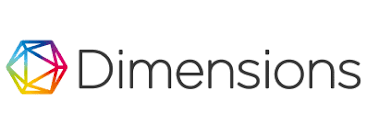Peranan Openness terhadap Prestasi Akademik Mahasiswa Dengan Motivasi Sebagai Mediator
Abstract
Openness, yang ditunjukkan dengan rasa ingin tahu yang tinggi, berpikiran terbuka, imajinatif dan senang mencoba hal baru, telah sering dikaitkan dengan prestasi akademik. Motivasi mengarahkan sifat dan perilaku menuju keberhasilan dan karena itu dianggap sebagai penentu prestasi akademik. Tujuan penelitian ini adalah untuk menguji apakah motivasi dapat menjadi mediator dalam peranan openness terhadap prestasi akademik mahasiswa. Mahasiswa mengisi kuesioner untuk mengukur ketiga variabel. Pengukuran prestasi akademik menggunakan data indeks prestasi kumulatif (IPK) mahasiswa. Alat ukur openness menggunakan skala openness pada Neo-FFI (Costa & McCrae, 1992), yang diterjemahkan oleh Bagian Riset dan Pengukuran Fakultas Psikologi Universitas Tarumanagara (Cronbach's alpha = 0,740). Motivasi, sebagai variabel mediator, diukur dengan menggunakan Academic Motivation Scale (Vallerand, 1992), yang telah diadaptasi ke dalam Bahasa Indonesia oleh Marvianto & Widhiarso (2018) (Cronbach's alpha = 0,854). Partisipan sebanyak 207 mahasiswa strata 1 (S1) dari berbagai perguruan tinggi dan program studi yang berusia 17 – 22 tahun. Analisis data menggunakan moderating regression analysis dari Barron dan Kenny (1986). Hasil penelitian menunjukkan bahwa motivasi merupakan mediator dalam peranan openness terhadap prestasi akademik mahasiswa.
Full Text:
PDF (Bahasa Indonesia)References
Bergold, S., & Steinmayr, R. (2018). Personality and Intelligence Interact in the Prediction of Academic Achievement. Journal of Intelligence, 6(2), 27. https://doi.org/10.3390/jintelligence6020027.
Burnette, J. L., O'Boyle, E. H., VanEpps, E. M., Pollack, J. M., and Finkel, E. J. (2013). Mind-sets matter: a meta-analytic review of implicit theories and self-regulation. Psychol. Bull. 139, 655–701. doi: 10.1037/a0029531.
Cerasoli, C. P., Nicklin, J. M., & Ford, M. T. (2014). Intrinsic motivation and extrinsic incentives jointly predict performance: A 40-year meta-analysis. Psychological Bulletin, 140(4), 980–1008. https://doi.org/10.1037/a0035661.
Costa, Ana & Faria, Luísa. (2014). The impact of Emotional Intelligence on academic achievement: A longitudinal study in Portuguese secondary school. Learning and Individual Differences. 37. 10.1016/j.lindif.2014.11.011.
Costa, P. T., & McCrae, R. R. (1992). Normal personality assessment in clinical practice: The NEO Personality Inventory. Psychological Assessment, 4(1), 5–13. https://doi.org/10.1037/1040-3590.4.1.5.
DeYoung, Colin G., Quilty Lena C., Peterson, Jordan B. & Jeremy R. Gray. (2014). Openness to Experience, Intellect, and Cognitive Ability, Journal of Personality Assessment, 96:1, 46-52, DOI: 10.1080/00223891.2013.806327.
Direktorat Jenderal Pendidikan Tinggi Kementerian Pendidikan dan Kebudayaan Republik Indonesia. 2020. Statistik Pendidikan Tinggi 2020.
Du, Y., Xie, L., Zhong, J.A., Zou, H., Law, R.K., & Yan, X. (2019). Creativity fostering teacher behavior on student creative achievement: Mediation of intrinsic motivation and moderation of openness to experience. School Psychology International, 40, 525 - 542.
Gatzka, Thomas. (2021). Aspects of openness as predictors of academic achievement. Personality and Individual Differences. 170. https://doi.org/10.1016/j.paid.2020.110422.
Gatzka, T., & Hell, B. (2018). Openness and postsecondary academic performance: A meta-analysis of facet-, aspect-, and dimension-level correlations. Journal of Educational Psychology, 110(3), 355–377. https://doi.org/10.1037/edu0000194.
Hattie, J. Visible Learning: A Synthesis of over 800 Meta-Analyses Relating to Achievement; Routlege: London, UK, 2009; ISBN 9780415476171.
McCrae, R. R. (1987). Creativity, divergent thinking, and openness to experience. Journal of Personality and Social Psychology, 52(6), 1258–1265. https://doi.org/10.1037/0022-3514.52.6.1258.
M.C. O’Connor, S.V. Paunonen. (2007). Big Five personality predictors of post-secondary academic performance. Personality and Individual Differences, 43 (2007), pp. 971-990, 10.1016/j.paid.2007.03.017.
Pascoe, L., Spencer-Smith, M., Giallo, R., Seal, M. L., Georgiou-Karistianis, N., Nosarti, C., Josev, E. K., Roberts, G., Doyle, L. W., Thompson, D. K., & Anderson, P. J. (2018). Intrinsic motivation and academic performance in school-age children born extremely preterm: The contribution of working memory. Learning and Individual Differences, 64, 22–32. https://doi.org/10.1016/j.lindif.2018.04.005.
Poropat, A. E. (2009). A meta-analysis of the five-factor model of personality and academic performance. Psychological Bulletin, 135(2), 322–338. https://doi.org/10.1037/a0014996.
Richardson, M., Abraham, C., & Bond, R. (2012). Psychological correlates of university students' academic performance: a systematic review and meta-analysis. Psychological bulletin, 138(2), 353–387. https://doi.org/10.1037/a0026838.
Romero, C., Master, A., Paunesku, D., Dweck, C. S., and Gross, J. (2014). Academic and emotional functioning in middle school: the role of implicit theories. Emotion 14, 227–234. doi: 10.1037/a0035490.
Rüppel, Florian & Liersch, Sebastian & Walter, Ulla. (2015). The influence of psychological well-being on academic success. Journal of Public Health. 23. 15-24. 10.1007/s10389-015-0654-y.
Ryan, R. M., & Deci, E. L. (2009). Promoting self-determined school engagement: Motivation, learning, and well-being. In K. R. Wenzel & A. Wigfield (Eds.), Handbook of motivation at school (pp. 171–195).
Santrock, John W. (2017). Educational Psychology (6th Edition ed.). New York: Mc Graw Hill.
Silvia, P. J., Nusbaum, E. C., Berg, C., Martin, C., & O'Connor, A. (2009). Openness to experience, plasticity, and creativity: Exploring lower-order, high-order, and interactive effects. Journal of Research in Personality, 43(6), 1087–1090. https://doi.org/10.1016/j.jrp.2009.04.015.
Spinath, Birgit. (2012). Academic achievement. In Encyclopedia of human behavior. 2d ed. Edited by Vilanayur S. Ramachandran, 1–8. San Diego, CA: Academic Press.
Steinmayr, R., Meissner, A., Weidinger, A. F., & Wirthwein, L. (2014). Academic Achievement. Oxford Bibliographies. https://doi.org/10.1093/obo/9780199756810-0108.
Vansteenkiste, M., Zhou, M., Lens, W., & Soenens, B. (2005). Experiences of autonomy and control among Chinese learners: Vitalizing or immobilizing? Journal of Educational Psychology, 97(3), 468–483.
Vedel, Anna. (2014). The Big Five and tertiary academic performance: A systematic review and meta-analysis. Personality and Individual Differences, 71, pp. 66-76, 10.1016/j.paid.2014.07.011.
Vedel, Anna & Poropat, Arthur. (2017). Personality and Academic Performance. 10.1007/978-3-319-28099-8_989-1.
Wibrowski, C. R., Matthews, W. K., & Kitsantas, A. (2017). The Role of a Skills Learning Support Program on First-Generation College Students’ Self-Regulation, Motivation, and Academic Achievement: A Longitudinal Study. Journal of College Student Retention: Research, Theory & Practice, 19(3), 317–332. https://doi.org/10.1177/1521025116629152.
York, Travis T.; Gibson, Charles; and Rankin, Susan (2015) "Defining and Measuring Academic Success," Practical Assessment, Research, and Evaluation: Vol. 20 , Article 5. DOI: https://doi.org/10.7275/hz5x-tx03.
Ziegler, M., Danay, E., Heene, M., Asendorpf, J., & Bühner, M. (2012). Openness, fluid intelligence, and crystallized intelligence: Toward an integrative model. Journal of Research in Personality, 46(2), 173–183. https://doi.org/10.1016/j.jrp.2012.01.002.
DOI: http://dx.doi.org/10.24014/jp.v19i1.20115
Refbacks
- There are currently no refbacks.
REDAKSI : JURNAL PSIKOLOGI
Jl. H.R. Soebrantas Km. 15.5 No. 155,
Gedung Fakultas Psikologi UIN Sultan Syarif Kasim Riau
Kel. Tuahmadani, Kec. Tampan, Pekanbaru – Riau 28293
1.jpg)
.jpg)














